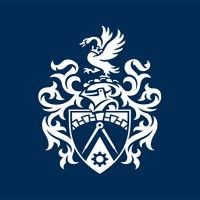
Brunel University London

Professor Andrew Jones
Summary
Brunel University of London is a public research university located in Uxbridge, West London. Established in 1966 and named after the engineer Isambard Kingdom Brunel, the university is known for its focus on engineering, science, business, and social sciences. In 2024, Brunel became a member of the University of London federation and now operates under the name Brunel University of London.
The university has over 16,000 students and approximately 2,200 staff from more than 150 countries. It offers a wide range of undergraduate, postgraduate, online, and research programmes. These include courses in engineering, business, law, health sciences, education, design, arts, and computing. It is also known for its “sandwich degree” model, where students gain industry experience as part of their academic studies.
Brunel is organised into three academic colleges: the College of Business, Arts and Social Sciences; the College of Engineering, Design and Physical Sciences; and the College of Health, Medicine and Life Sciences. It also has five key research institutes focusing on digital futures, health, energy, society, and manufacturing. The campus includes specialist labs, simulators, design studios, a gym, library, accommodation for over 4,500 students, and student social spaces.
The university’s annual income in 2021–22 was £271.3 million (approximately $342 million), including £22.4 million (about $28.2 million) from research grants. It has made strong investments in research, particularly in fields such as cancer genetics, digital performance, sports medicine, and environmental science. Brunel ranked in the 351–400 band globally in the Times Higher Education 2025 rankings and placed 342 in QS 2025.
Notable alumni include Olympic athletes, Members of Parliament, engineers, actors, and media professionals. The Chancellor is Sir Richard Sykes and the Vice-Chancellor is Professor Andrew Jones. The university continues to support innovation, education, and public engagement through teaching, research, and partnerships.
History
Brunel University of London traces its origins to Acton Technical College, which was established to provide technical education in London. In 1957, the college was divided into two parts. One part continued as Acton Technical College for technician-level education, while the other became Brunel College of Technology, named after the British engineer Isambard Kingdom Brunel. This new college was formed with a focus on engineering education for chartered engineers.
In 1960, Brunel College of Technology received the status of a College of Advanced Technology. A decision was then made to expand its facilities, and Uxbridge was chosen as the new site. The college was officially renamed Brunel College of Advanced Technology in 1962. It became the tenth and last College of Advanced Technology in the UK. The institution continued to develop, and on 9 June 1966, it was granted a Royal Charter, giving it full university status. It became Brunel University and began awarding its own degrees.
The university initially operated across two campuses, in Acton and Uxbridge, but consolidated operations in Uxbridge by 1971. In 1980, Brunel merged with Shoreditch College of Education at Runnymede, expanding its educational offering. In 1995, Brunel merged with the West London Institute of Higher Education, gaining new campuses in Osterley and Twickenham. This allowed the university to broaden its subject areas, adding arts, humanities, geography, and health sciences.
During the late 1990s and early 2000s, Brunel underwent organisational changes. Some departments such as physics and chemistry were closed, and in 2004, the university was restructured into schools under the leadership of Vice-Chancellor Steven Schwartz. Further internal restructuring took place in 2014, and the university’s name was formally changed to Brunel University London under a supplemental charter.
In 2016, Brunel marked the 50th anniversary of its Royal Charter with events celebrating its development. The university has since continued to invest in its Uxbridge campus, following a major redevelopment plan that included new halls of residence, library extensions, and modernised teaching and sports facilities.
In 2020, the Chancellor, Sir Richard Sykes, led a review of the UK’s Vaccine Taskforce and later chaired the group during the national COVID-19 vaccination rollout. In 2021, Julia Buckingham stepped down as Vice-Chancellor after nearly a decade. She was succeeded by Professor Andrew Jones in January 2022.
In October 2024, Brunel officially became a member of the University of London federation, adopting the name Brunel University of London. The university now operates three academic colleges and five research institutes. It has an international student population and continues to focus on research, practical education, and global partnerships.
As of 2025, the university remains active in education, innovation, and applied research, with growing contributions in public health, engineering, and digital technologies.
Courses
Brunel University of London offers a wide range of courses at undergraduate, postgraduate, and research levels. These courses are designed to combine academic knowledge with practical skills. Many include a placement year, which gives students the opportunity to gain real-world experience before they graduate.
At the undergraduate level, Brunel offers degrees in engineering, business, law, health, science, computing, design, arts, education, and social sciences. In engineering, students can choose from Aerospace Engineering, Mechanical Engineering, Civil Engineering, Automotive Engineering, and Electronic and Electrical Engineering. Each of these degrees is available as a BEng or MEng, with an option to take a placement year.
Business-related undergraduate degrees include Accountancy, Accounting and Business Management, Banking and Finance, International Business, and Marketing. Students can choose courses that focus on finance, business operations, or management, and most include placement options.
In law, students can study the LLB Law programme, which covers core legal topics and offers practical training. Brunel Law School also provides options to specialise in areas like international law or commercial law.
Health and life sciences courses include Biomedical Sciences, Physiotherapy, Psychology, Occupational Therapy, and Environmental Sciences. These courses are supported by modern laboratories and clinical training facilities.
In computing and digital media, Brunel offers degrees in Computer Science, Games Design, Data Science, and Artificial Intelligence. Students are taught using up-to-date software and hardware, with access to labs and project work.
Courses in the arts and humanities include Creative Writing, English, Theatre, Film Studies, and Music. Social science subjects include Sociology, Anthropology, Criminology, Politics and International Relations, History, and Journalism. Education and teaching-related programmes are also available.
At the postgraduate level, Brunel offers over 130 courses. These include MScs in Advanced Electronic and Electrical Engineering, Engineering Management, Artificial Intelligence, Data Science, Sustainable Energy, and Advanced Manufacturing Systems (available online). Business and management students can study Marketing, Accounting and Business Intelligence, or International Business. Public health and clinical subjects include Master of Public Health (MPH), Health Economics, and Advanced Clinical Practice.
Brunel also provides online postgraduate courses. These include Public Health and Behaviour Change, Psychological Sciences (Conversion), and Global Public Health & Social Justice. These courses are suited for professionals who need flexible study options.
Research degrees (MPhil and PhD) are offered across a wide range of disciplines including engineering, sciences, law, health, arts, and social sciences. Research students receive supervision and access to specialist resources and labs.
Many Brunel courses are accredited by professional bodies such as the Institution of Mechanical Engineers (IMechE), the Institution of Civil Engineers (ICE), and the Law Society. This means students can work towards becoming chartered professionals in their fields.
In all subject areas, students benefit from industry links, placement opportunities, and support services. This helps them to gain practical experience and improve their job prospects after graduation. Brunel’s course structure ensures that students are well prepared for careers in their chosen fields.
Global MBA rankings
- QS World University Rankings 2025: Ranked 342 globally
- Times Higher Education (THE) World University Rankings 2025: Ranked in the 351–400 band
- Academic Ranking of World Universities (ARWU) 2024: Placed in the 701–800 range
- Top 10% worldwide for research social and environmental impact (THE Impact Rankings 2024)
- Ranked among the top 50 UK universities for subjects such as Civil Engineering, Computer Science, and Law in The Complete University Guide 2025
Job integration rate
According to the latest data, around 95% of graduates are in work or further study within 15 months of graduating. The university provides over 4,500 placements annually through its professional and placement year programmes. Brunel supports students with CV writing, interview preparation, job fairs, and employer networking events. Many courses are designed with input from industry and include a placement or internship year, giving students real-world experience before they graduate.
General information
- Brunel University of London| Brunel University
- Brunel University of London| Wikipedia
- Brunel University of London (@bruneluni)| Instagram · bruneluni
- Brunel University of London : Rankings, Fees &| Top Universities
- Brunel University London| Masters Portal
- Brunel University of London Employees, Location, Alumni| LinkedIn · Brunel University of London
- Brunel University: Rankings, Courses, Fees, Reviews| Shiksha
- Brunel University of London| Facebook · Brunel University of London
- Brunel University London courses and application information| studyin-uk.ca
- Brunel University of London| Times Higher Education
- Brunel University of London| UCAS
- Apply to Brunel University London| Common App
Explore the latest data on Business, Industry Leaders and Influencers, Organizations, Education, and Investors to stay informed and ahead.

Professor Andrew Jones
